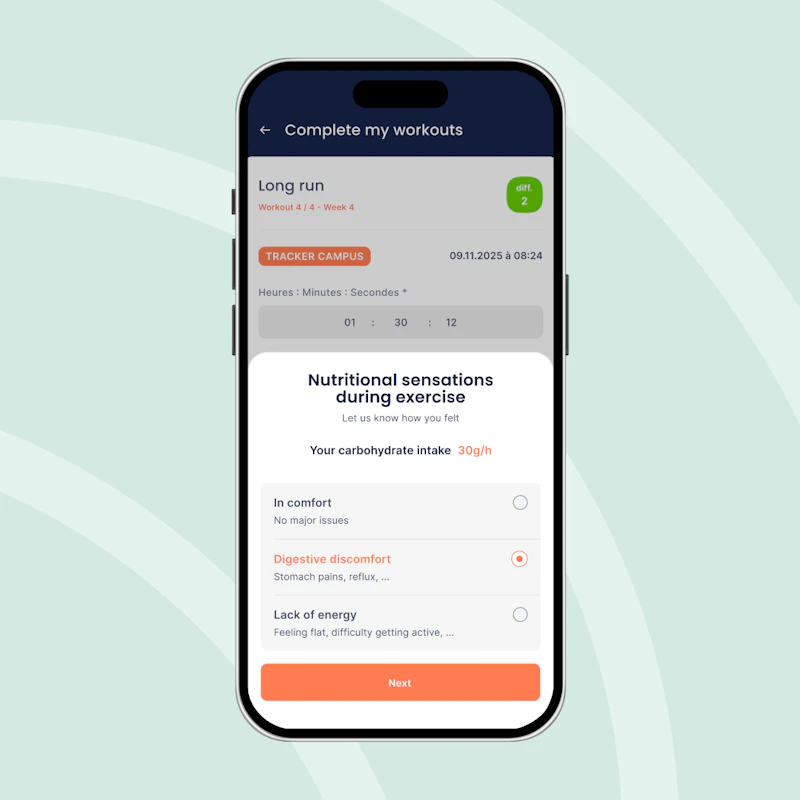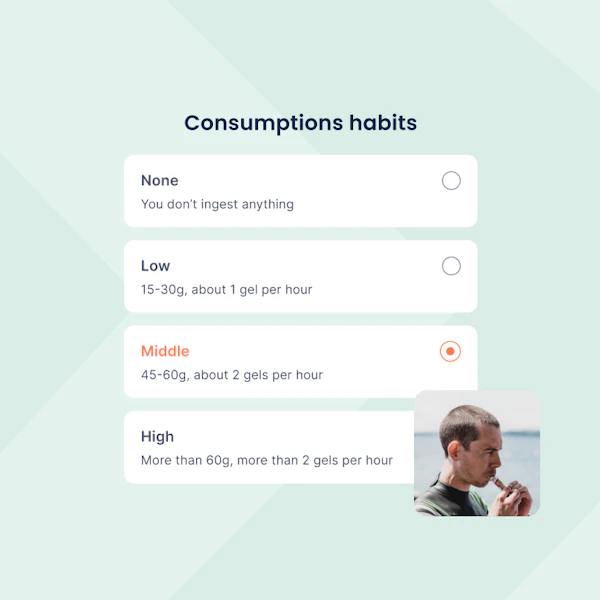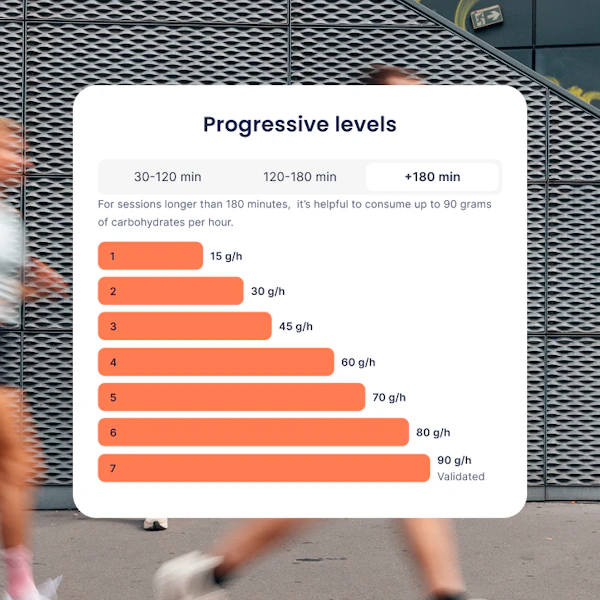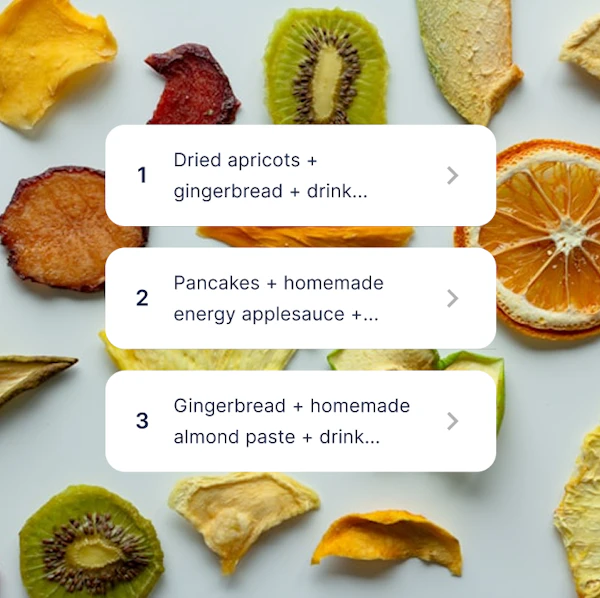Directly in your training plan
FAQ
Frequently asked questions
What is gut training?
What is gut training?
Gut Training is the invisible training for runners.
👉 It teaches your digestive system to tolerate the energy you consume during exercise.
👉 It helps you push through the wall, maintain your pace, and finish strong.
👉 It prepares you to perform in half marathons, marathons, long trails, or ultras without digestive issues.
Campus now incorporates this method into your training plan:
➡️ Progressive steps to get your body used to it.
➡️ Sessions tailored to your distance and profile.
➡️ Post-session feedback to fine-tune your energy strategy.
The result: stable energy, a ready body, and a race you control from start to finish.
Which Campus sessions include gut training?
Which Campus sessions include gut training?
If you activate the Gut Training option, we will recommend a certain amount of carbohydrate intake for your long runs and intense sessions. The more you train your stomach, the more you eliminate the risk of “mishaps” on race day!
How to refuel during a half marathon?
How to refuel during a half marathon?
In a half marathon, your goal is to maintain your energy from the first kilometer to the last without overloading your stomach. Ideally, you should consume between 30 and 60 g of carbohydrates per hour in the form of energy gels, sports drinks, or easily digestible bars.
💡 Most importantly, test your nutrition during training so that your digestive system can get used to it.
This is exactly what Campus Gut Training allows you to do: integrate digestive training directly into your plan.
Thanks to progressive stages and tailored sessions, your stomach learns to tolerate running gels and manage marathon drinks during exercise.
The result: smooth half-marathon nutrition, controlled digestion, and energy that lasts until the finish line.
How much fuel do you need for a marathon?
How much fuel do you need for a marathon?
Marathon nutrition is a strategy in its own right: over 42 km, managing your carbohydrate and hydration intake will determine your performance.
Depending on the duration of your effort, the ideal would be to aim for around 60 to 90 g of carbohydrates per hour, alternating between endurance gels, energy drinks, or sometimes solid foods (such as fruit jellies) if you wish.
The most common mistake? Testing these products on the day of the race.
With Campus Gut Training, you learn to train your stomach as well as your legs.
Each week, your plan helps you test your running nutrition in real conditions, adjust your dosage, and strengthen your digestive tolerance.
This way, your marathon nutrition plan becomes more than just a simple carbohydrate calculation: it's real performance training, without cramps or nausea.
How to refuel on a trail run?
How to refuel on a trail run?
In trail running, the body faces efforts that are generally longer than on the road, more irregular, and often at altitude. The challenge of refueling is twofold: preserving glycogen reserves while avoiding digestive problems.
Depending on the duration, aim for between 40 and 80 g of carbohydrates per hour when trail running, alternating between running gels, isotonic drinks, and salty or solid foods (such as dried fruit or gingerbread).
Campus' Gut Training helps you prepare your body for this challenge: you'll find specific sessions to test your running gels, hydration, and energy intake on long runs.
By getting your digestive system used to exercise, you'll gain muscle endurance and comfort over long distances—for controlled trail nutrition, even after several hours of effort.








